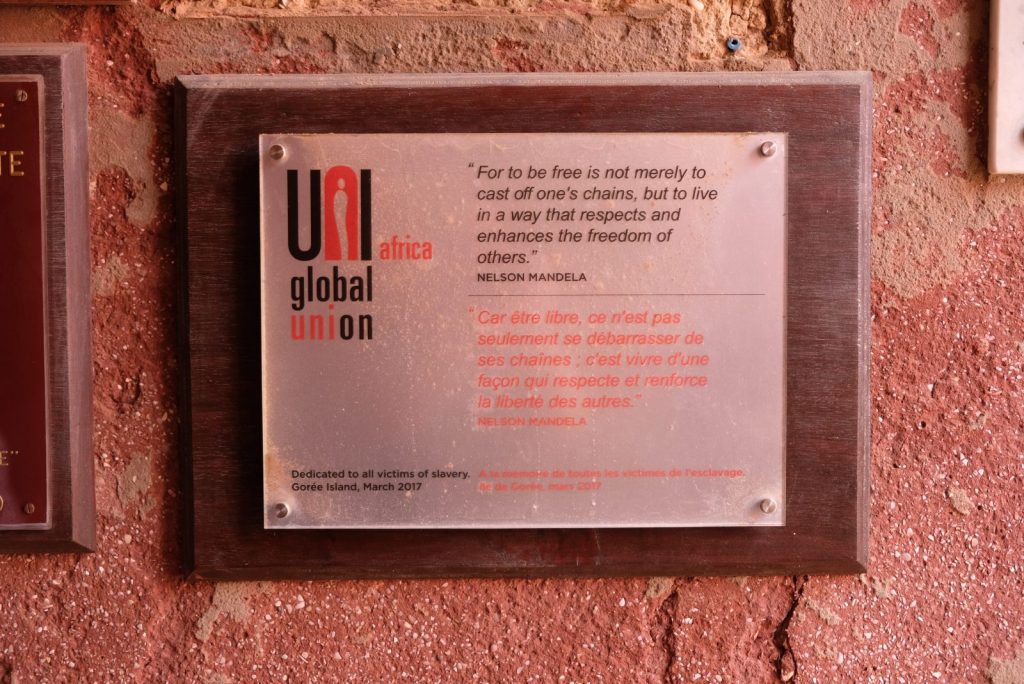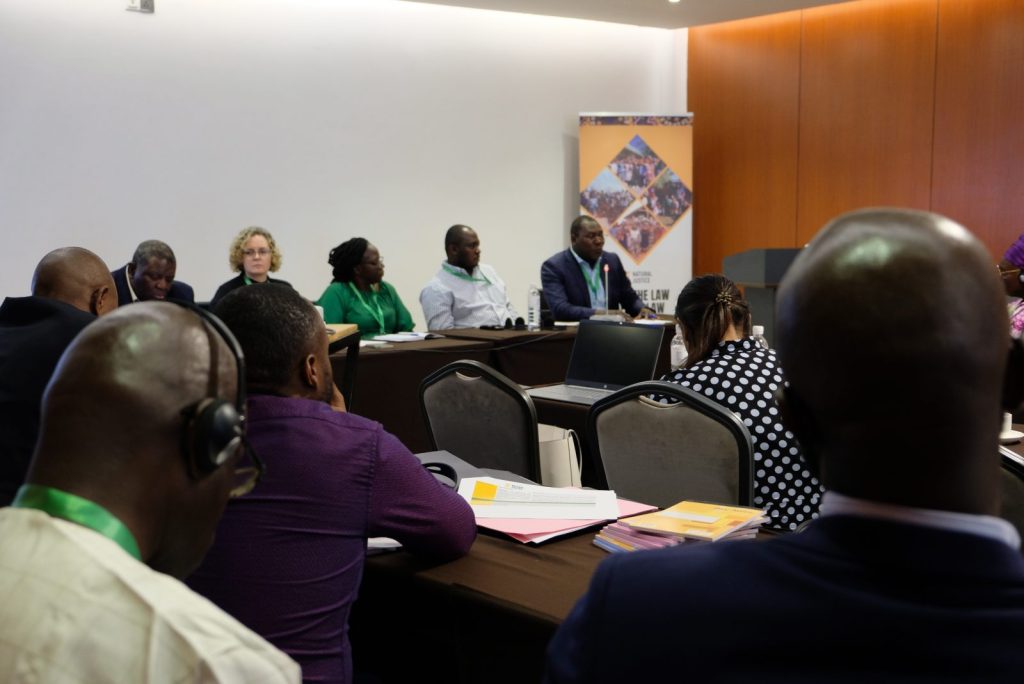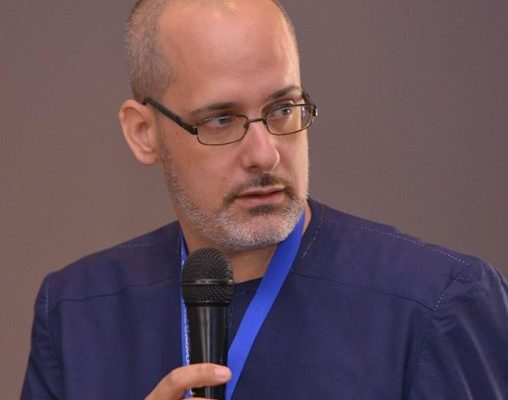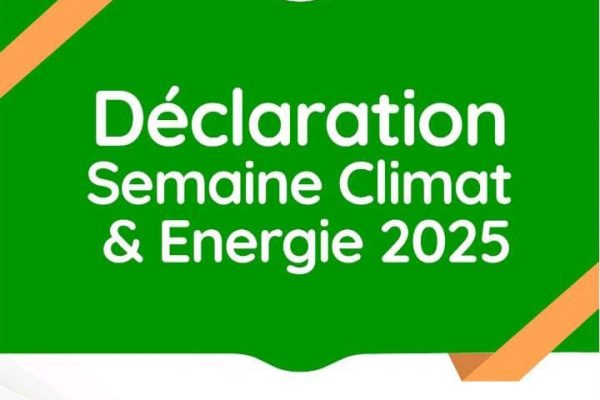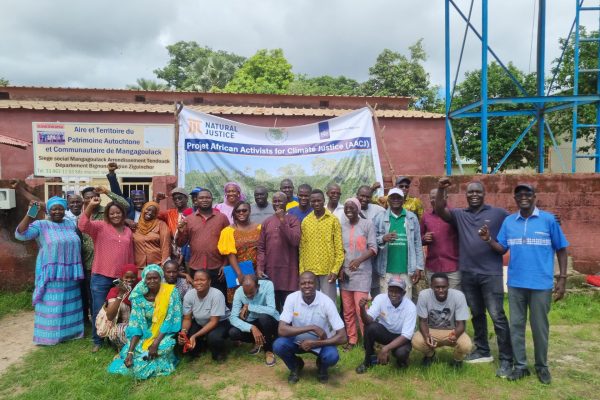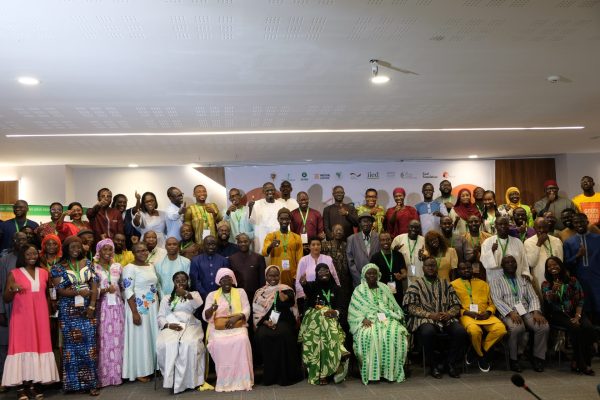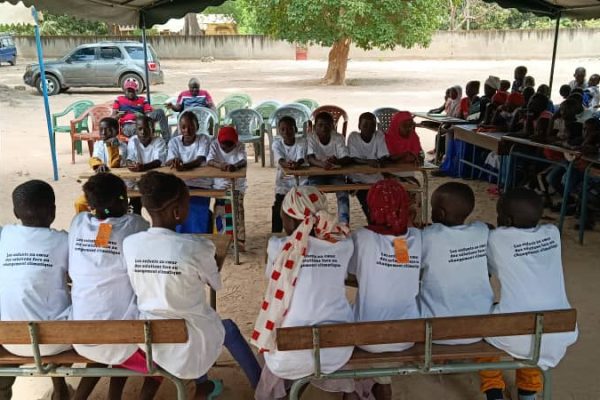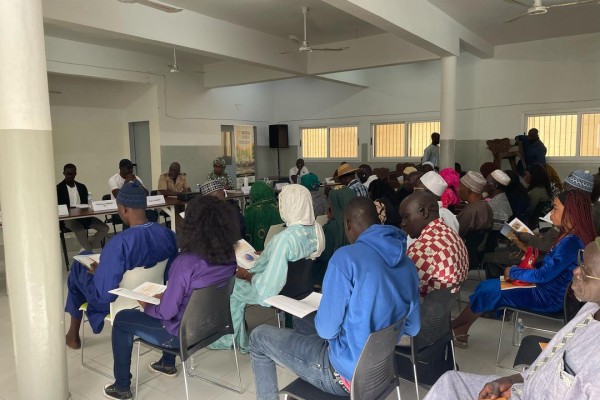In 2022, at Natural Justice’s first Regional Meeting for African Environmental Defenders, we saw the value of bringing together activists from diverse backgrounds and various countries to talk, rest and re-strategise.
In this way, they come to know that there are others like them doing similar work across the continent under similar repressive systems. Activism in Africa is not only difficult and dangerous, but it can also be lonely. In Kilifi County in Kenya, where defenders converged, we saw friendships blossom and tense shoulders relax.
In 2024, the African Environmental Defenders Initiative of Natural Justice chose Senegal for the next regional meeting point. Senegal is currently a safe and welcoming country for many nationalities, and it was a surprise for many defenders attending to meet government officials from the Senegalese environmental departments who were encouraging of civil society. This is unusual, as historically, defenders find themselves on opposing legal- and moral sides when it comes to state actors. Governments tend to side with the extractive and energy sectors seeking to exploit the resources and land of communities.
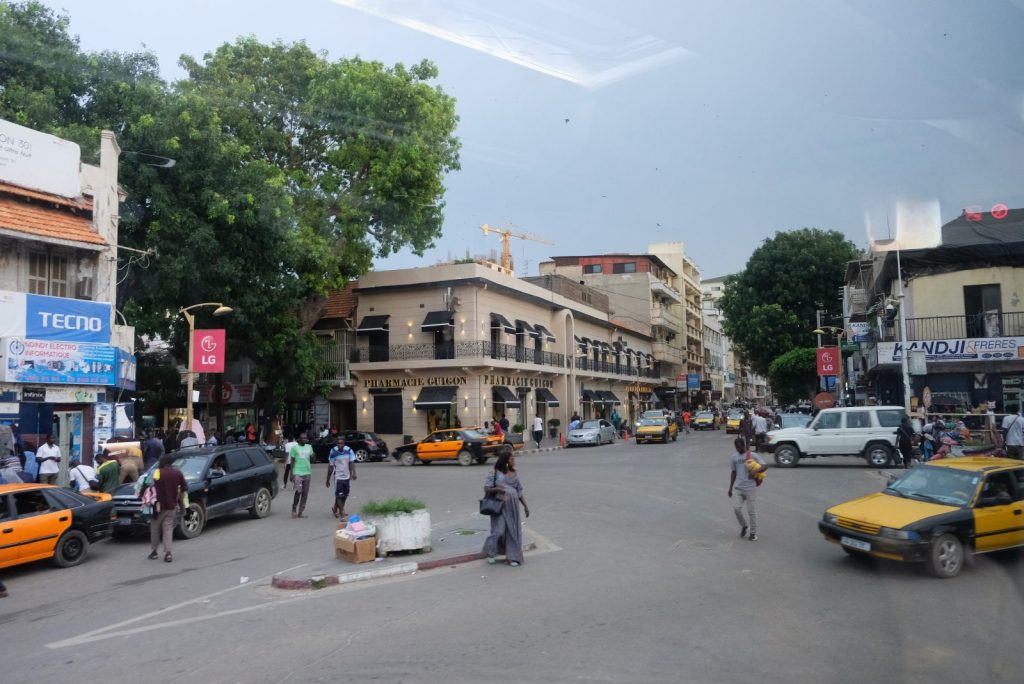
African environmental defenders are facing a conundrum. Firstly, data on the threats to and killings of environmental defenders is lacking. This results in an undercount and poor emphasis on the situation of African defenders. However, Africa is a burgeoning frontier of extractive projects – anything from oil and gas on and offshore, to critical minerals (those used for renewable energy technologies) are found in various countries – and with poor regulatory frameworks and political strife, communities and governments are vulnerable to exploitation.
We need to get a proper understanding of hotspots, perpetrators and the threats to African defenders, and in this way strategise to develop the legal and human rights responses necessary to protect and advance their activism.
Over the years, we have seen that the sources of the threats to communities are endless and varied – and ever changing. The newest threats are couched as “solutions” to the climate crisis. These can be carbon and biodiversity credits for example; or protected areas and conservation initiatives. And of course, critical minerals. These exacerbate biodiversity losses, and lead to mass evictions and the cutting off of communities from their livelihoods.
Within this exploitative and neo-colonial space, countless people are forced to resist. This takes courage and conviction. It also takes networks, knowledge and experience.
Who are defenders in Africa
Over the past five years of its existence, the African Environmental Defenders Initiative has met dozens of defenders working across the spectrum of industry-government-community conflict zones – and these activists take various forms. They can be the youth holding up the placards in the marches, the women organising themselves against big agriculture, and the human rights lawyers and journalists who are more inclined to desk work than protests. It takes all of them to make a difference.
We gathered forty-five defenders in Senegal to take stock of the current situation. It must be highlighted that, according to Global Witness’s latest report, land and environmental defenders are currently the most at-risk defenders for threats and killings.
Despite this, we also came to understand the difficulty of firstly, defining an environmental defender. In fact, some of those attending had never considered themselves “defenders” – perhaps because their resistance has come about naturally. Being a defender is not a choice, but forced upon you when your life and livelihoods are threatened. Secondly, there are so many gaps in the data on killings. How then, can we bridge those gaps?
The Mano River Union Civil Society Natural Resource Rights and Governance Platform has been working on the West African Directory. The West African Directory will endeavor to bridge the data gap in Africa by collecting and documenting attacks against environmental defenders in West Africa. Is this something that can be replicated within the other sub-regions?
Different organizations, including the African Environmental Defenders Initiative, have begun developing data collecting tools to document attacks of environmental defenders. The Initiative and others have also endevoured to bring defenders together to talk. These convenings have been commended as critical spaces to assess the status of environmental rights and progression of data on lethal and non-lethal attacks of environmental defenders in Africa.
The challenges of women defenders
Part of the discussion during the 2024 regional meeting focused on the situation of women. Women defenders are not always recognised as “defenders” because they are simply doing what gender roles obligate them to do – or they are holding together their families and ensuring that the men, who are often more prominently placed, are cared for.
They also stay silent, often because they face gendered reprisals and lack decision-making power both within and outside the household. We heard that for some, their husbands can refuse them to relocate when they have been threatened. Women also face the challenge of lack of information, which can impede their participation in decision-making. Even in decision-making spaces, their voices may not be respected.
To be a prominent women defender, a woman must first get past the patriarchal family structure, and only then can they begin to face the larger structures of oppressions. A two-fold burden that many cannot overcome for long periods of time. “Most women who have started with the energy, have given up”, stated one participant.
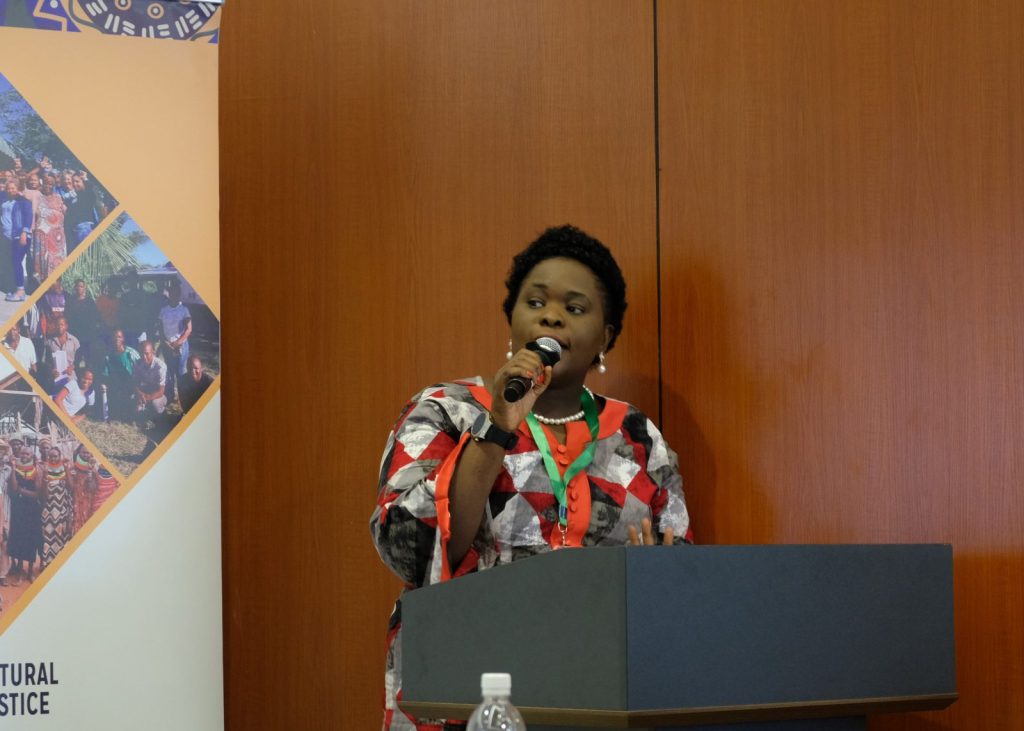
Strategies for protecting defenders
The predominant focus of the Defenders meeting was to discuss ways to improve the protection of environmental defenders and reframe our understanding of holistic support. Current sources of support range from emergency funds and practical actions, to public interest and criminal litigation, and further to policy changes and law reform. The critical lens deployed by the participants threw much light on the difficulties and limitations of each strategy.
As an Emergency Fund itself, the African Environmental Defenders Initiative has had to consider its criteria for providing funding, as well as how the application process is managed. Other funders have faced similar issues to the Defenders Fund – for example, the Fund has faced challenges with verification processes, and delays in getting funds across borders. It is pleasing to know that the work managing the fund has proved to be invaluable for countless people, paying the costs of medical bills, providing rent and support for relocation and ensuring access to lawyers and legal assistance.
The Defenders urged the Emergency Fund to consider holistic forms of support that collectively cater to the psychological, physical, financial and security needs of a defender. In many cases, it is not enough to support one part of a person’s life and work. Emergency support must be understood to be more than the sum of its parts.
It is also not enough to just win the battle. Defenders at the meeting were encouraged to know and engage the enemy. “You cannot build a wall around yourselves and expect to win the war. You must engage the enemy and gather intel to inform how you respond. The enemy has already infiltrated and compromised your camp through threats, surveillance, physical assault and torture. It is therefore critical that we rethink how we respond to attacks”.
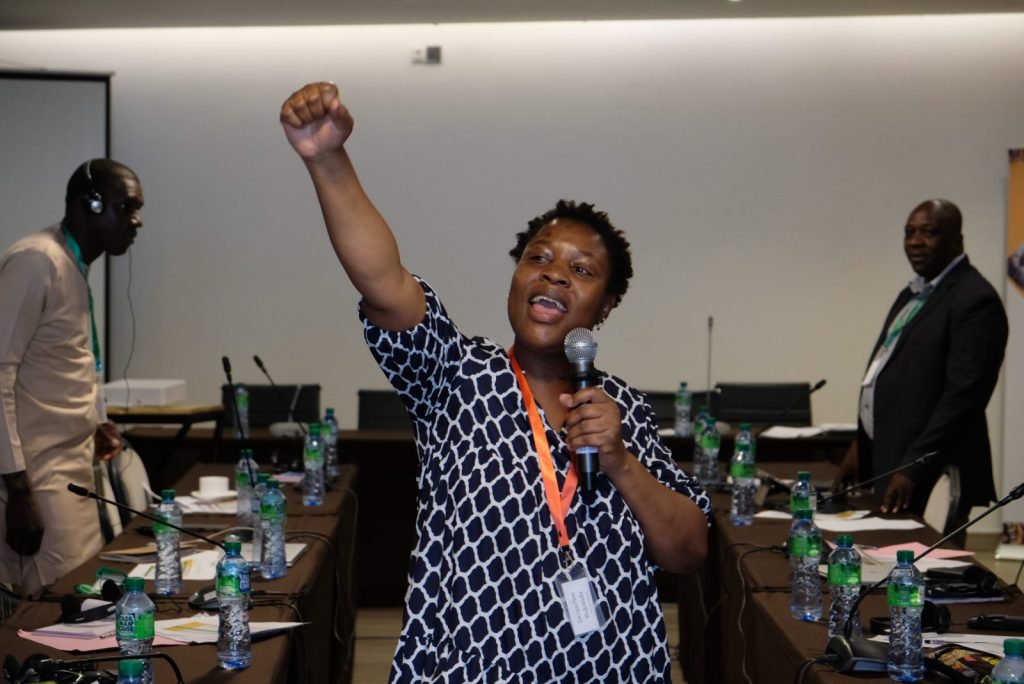
As the Emergency Fund undergoes restructuring, one of the key questions it will need to consider is how it can be more efficient in responding to the emergency needs of environmental defenders. On the one hand, the Fund has a fool-proof system built to ensure that the funds cater for those environmental defenders at risk, however on the other hand these same systems can be cumbersome, to the detriment of the defenders they are built to protect.
A key takeaway from this discussion was that emergency funds must be flexible, simple and adaptable, to easily and efficiently respond to the emergency needs of environmental defenders.
One of the aspects of protection for defenders is legal assistance; however, this also faces challenges. One of the limitations of litigation in defense of defenders is simply that human rights lawyers are required to also know the criminal laws, take immediate action and always be ready to tackle the uncooperative and sometimes dysfunctional court systems. As one speaker said, “Public interest litigation is not a job. You make yourself available when defenders need you. Often this is at inconvenient times. This is hard work that takes an emotional toll on lawyers. This is what it takes to respond to the climate crises and support frontline defenders.”
Standing together and moving forward
On the whole, the second regional meeting for defenders was valuable to those in attendance. Of course, after the hours of intense and difficult discussions, they were able to take a field trip out to see one of Senegal’s tourist attractions, Goree Island. Its beauty, juxtaposed with its tragic past, provided a moment for all attendees to meditate on the west African nation and the difficult history of our continent as a whole. Africa is why we were there. Africa and its difficult future. We are still fighting a type of colonialism, fighting for freedom from the chains of multinationals and demanding respect for our people. It is only through a strong network of people, with knowledge, passion and support, that we can stand up against the struggles that lie ahead.
